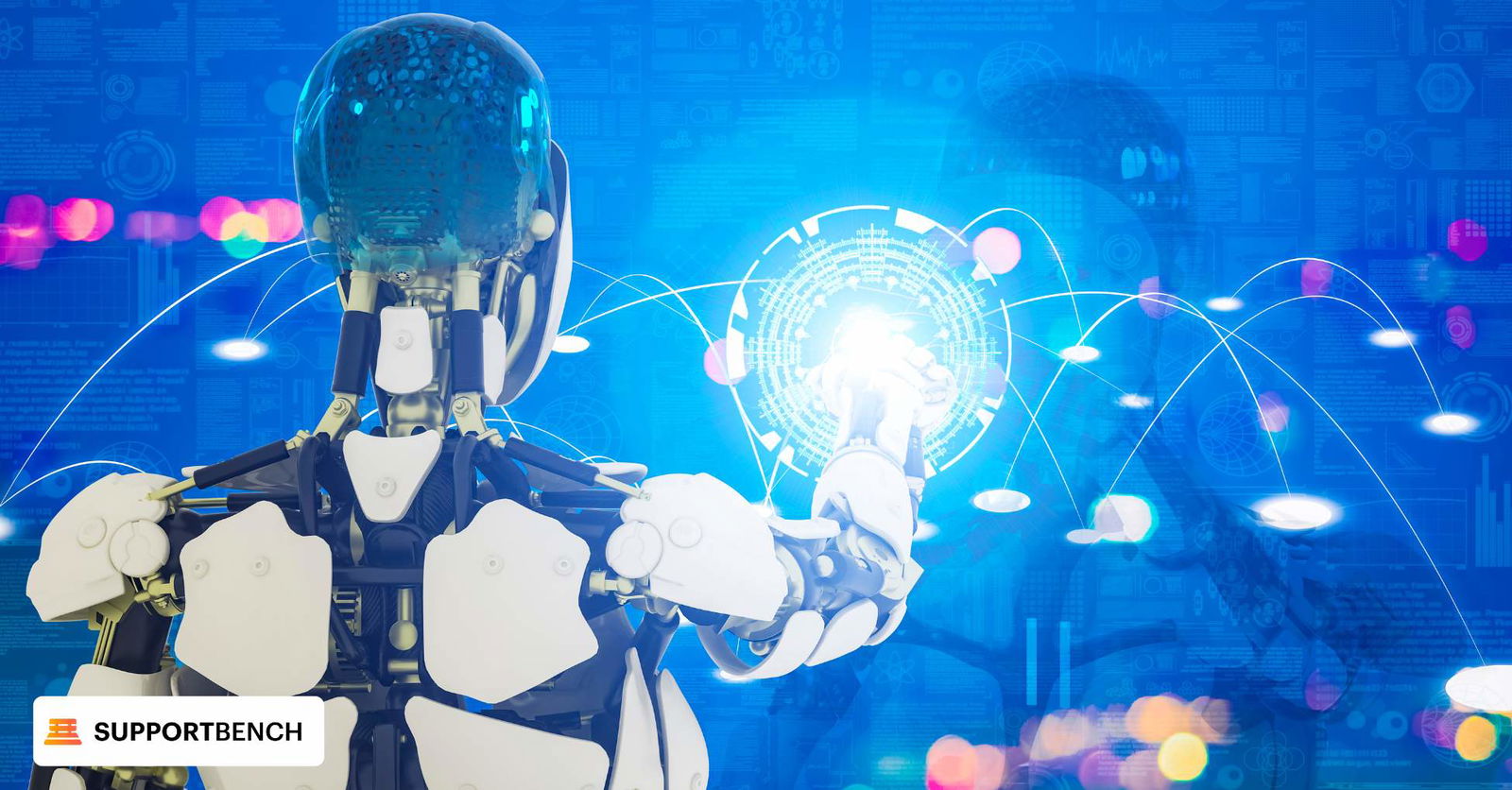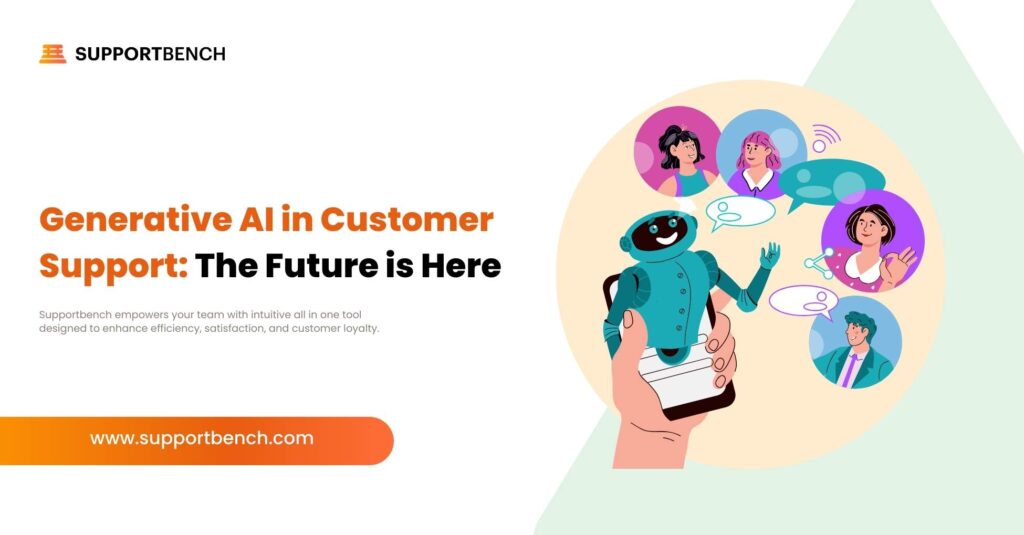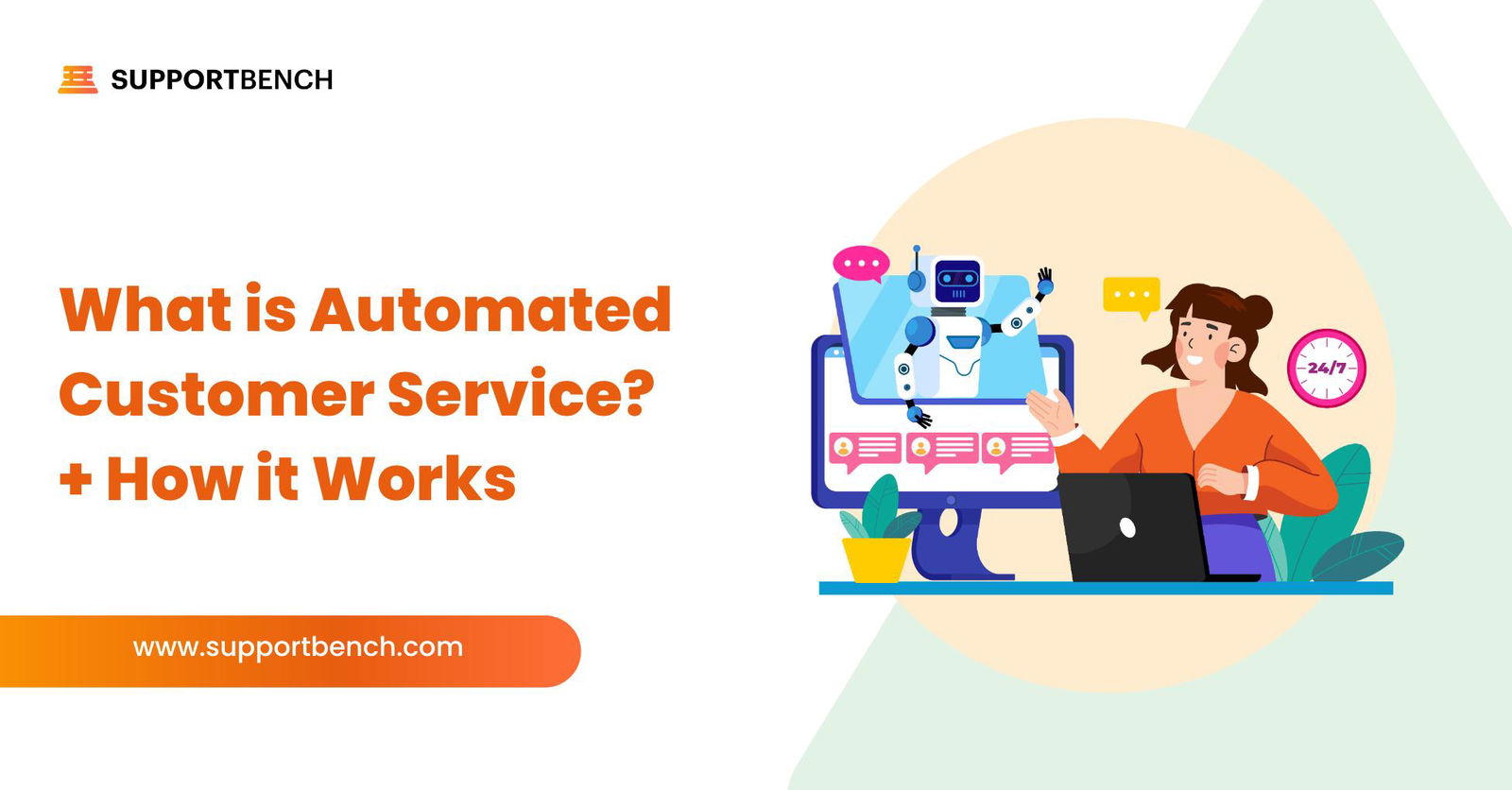Customer support is evolving at an unprecedented pace, and one of the major driving forces behind this evolution is generative AI. The technology, once seen as futuristic, is now playing a central role in customer service transformation. Generative AI uses complex models to understand and generate human-like responses, which can revolutionize the way customers interact with businesses. But how does generative AI work in the context of customer support, and why should companies be paying close attention?
Generative AI for customer support focuses on enhancing the customer experience by providing instant and accurate responses, automating workflows, and freeing human agents to solve more complex issues. With the capability to analyze customer interactions and learn from them, generative AI can provide consistent and empathetic answers, ultimately leading to greater customer satisfaction. But the key to leveraging generative AI lies in understanding its practical applications and ensuring that it is seamlessly integrated into existing customer service operations.
Enhancing Customer Interaction with Generative AI
Generative AI has the potential to enhance every customer interaction by delivering responses that feel natural and personalized. Unlike rule-based bots, which provide limited and often rigid answers, generative AI can understand context and generate dynamic responses based on the individual needs of the customer. This leads to fewer instances of frustration for customers who might be looking for more nuanced answers that a traditional chatbot simply can’t provide.
The recent growth in generative AI adoption has been spurred by its ability to learn from each interaction, creating a more human-like conversation over time. Companies like Shopify and Instacart have integrated generative AI to create better experiences by providing detailed product information and resolving issues more efficiently. These real-world applications demonstrate the tangible value that generative AI can bring to customer support teams. There are two main ways of enhancing interactions with AI:
- Contextual Understanding: Generative AI improves customer interactions by understanding the context of conversations. Unlike traditional chatbots, it can understand a customer’s previous interactions and apply that information to provide more accurate support. You can train generative AI models with data from multiple customer touchpoints to improve their ability to deliver personalized responses.
- Personalized Responses: Secondly, generative AI provides personalized responses that go beyond templated scripts, which results in a more meaningful interaction with customers. By using customer profile data such as previous orders or interactions, you an train AI models to provide personalized suggestions.
It was reported that 72% of people who interacted with customer service bots said that the quality of these interactions improved over time, and dissatisfaction levels dropped. This improvement is largely due to the capabilities of AI to understand context and provide more natural and personalized responses, unlike traditional chatbots, which often result in rigid, generic responses that frustrate customers (Hubspot).

Automating Repetitive Tasks
One of the greatest advantages of generative AI is its capability to automate repetitive tasks, allowing customer service agents to focus on high-value and complex issues that require human empathy and creativity. Routine queries, such as password resets or basic troubleshooting, can be handled efficiently by generative AI, reducing the volume of tickets for human agents.
Moreover, generative AI can be trained to detect patterns in customer inquiries. This helps pre-emptively identify widespread issues and send notifications before customers even ask for help. For example, a telecommunications provider might use generative AI to automatically alert customers if a known service disruption occurs in their area, which reduces incoming support requests and enhances customer trust. Two significant outcomes of automating repetitive tasks in customer support include:
- Reducing Ticket Volume: By automating common customer inquiries, generative AI reduces the workload for customer support agents, allowing them to concentrate on more complex problems. You can quite simply analyze the most frequent queries your support team receives and automate them using generative AI.
- Proactive Issue Detection: Secondly, AI models can identify recurring problems and alert customers before they have to reach out for support. You can simply set up automated alerts based on patterns detected by generative AI to proactively communicate with customers about known issues.
According to a HubSpot survey, 78% of customer service professionals agree that AI and automation tools help them focus on more critical tasks. Automating processes like ticket creation, routing, and email responses significantly reduces the manual effort required from agents, leading to faster response times and improved customer satisfaction.

Improving Agent Efficiency and Empowerment
Generative AI is not just for automating customer interactions—it can also be a valuable resource for customer support agents. AI-generated responses can act as suggestions for agents, ensuring that customers receive fast, well-informed responses, even when the agent is handling multiple queries. This use of AI empowers agents with the knowledge they need at their fingertips, reducing response times and increasing overall efficiency.
Beyond improving response time, generative AI can help reduce the cognitive load on support agents. When agents are given suggested responses and AI-generated knowledge base articles, they can focus more on understanding and empathizing with the customer’s problem rather than spending time searching for the right information. This support empowers agents and ultimately improves their job satisfaction. Two significant ways of improving agent efficiency is:
- AI-Assisted Replies: Generative AI can suggest responses for agents, providing consistent and high-quality service even when agents are juggling multiple tasks. Simply implement an AI assistant tool that provides response suggestions to agents during live customer interactions to improve accuracy and response time.
- Knowledge Base Generation: AI can automatically generate and update knowledge base articles based on the latest customer queries, ensuring that support agents have the most current information. You can use generative AI to update and optimize your knowledge base regularly, so support agents always have access to relevant resources.
According to a report from WorldMetrics, conversational AI can increase agent productivity by up to 50%. This data illustrates the role of AI in helping agents focus on more value-added tasks while AI handles routine and repetitive queries.

How Supportbench Enhances Customer Relations with Generative AI
Supportbench is at the forefront of generative AI for customer support, providing a powerful solution that enhances every aspect of customer interaction. With Supportbench, companies can leverage generative AI to provide personalized and consistent responses, proactively detect and address issues, and support agents with AI-powered tools that boost efficiency.
Supportbench integrates AI into its core customer service tools, enabling seamless interactions that make customers feel valued and heard. And, by using AI to identify and communicate potential issues before they escalate, Supportbench helps companies build trust and reduce inbound support volume. These types of AI Customer support tools provide support agents with response suggestions and up-to-date knowledge, which helps them deliver faster, more accurate service and improves their overall work experience.
Generative AI is changing the landscape of customer support, making it more efficient, empathetic, and effective. By integrating generative AI with platforms like Supportbench, companies can stay ahead of the curve and create exceptional customer experiences that drive loyalty and growth.
Conclusion
Generative AI is revolutionizing customer support by making interactions more personalized, automating repetitive tasks, and empowering support agents with enhanced tools. Despite its challenges, the advantages it offers are undeniable, allowing companies to deliver consistent, high-quality customer experiences. With the right implementation, generative AI becomes a game-changing asset, helping organizations stay competitive and improve customer loyalty. Platforms like Supportbench exemplify how generative AI can be seamlessly integrated into customer service operations to maximize both efficiency and customer satisfaction. As customer expectations continue to rise, embracing generative AI in customer support is not just an option—it is an essential strategy for long-term success.












